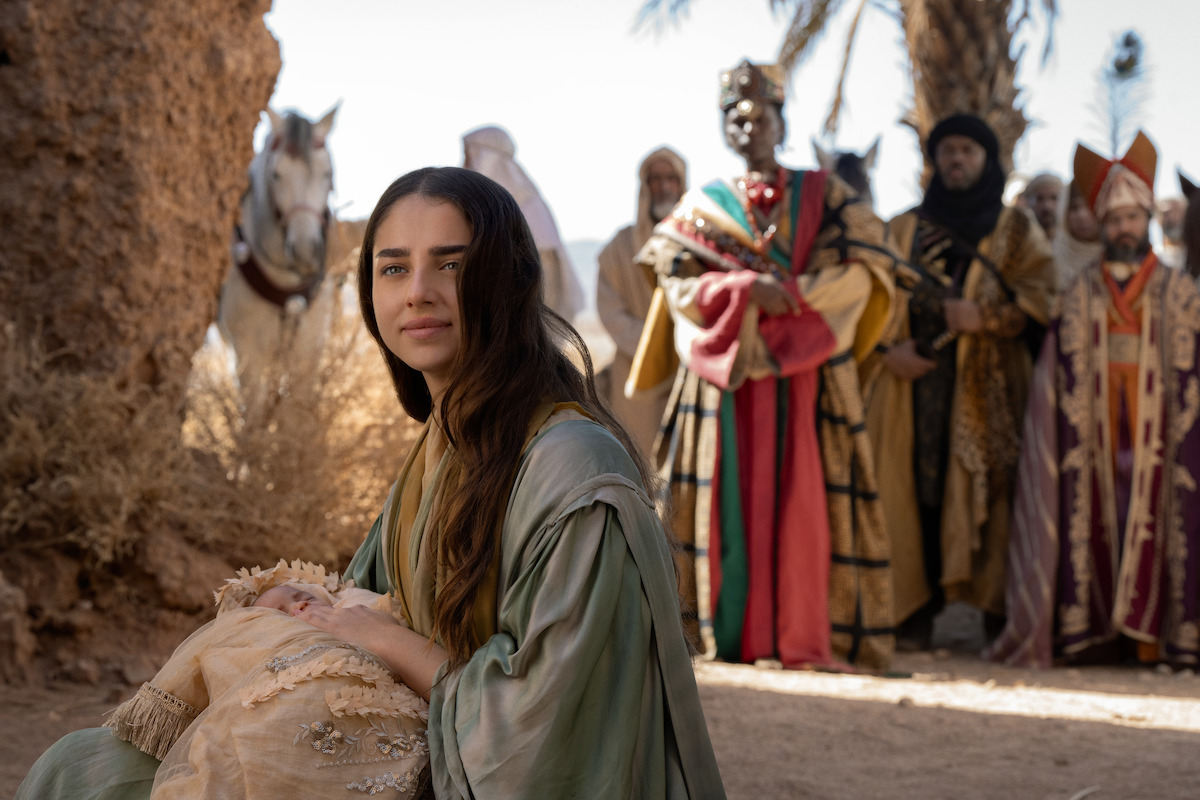The new film by Netflix, Mary Movie, directed by D.J. Caruso, has been a subject of much controversy because of its casting choices and the modern take on biblical themes. It narrates the life story of Mary, the mother of Jesus Christ, as it depicts her emotional journey from childhood to motherhood. The film’s purported aim to make Mary appear human and relatable is evident, but casting Israeli actress Noa Cohen, along with the creative liberties taken in the film, has drawn sharp criticism both from Palestinian supporters and conservative Christians.
The Casting Debate
Noa Cohen as Mary is at the heart of this controversy. There is the argument that in the Mary movie, with the role given to a Jewish Israeli, Mary will be portrayed with the connotation of political insensitivity on the part of the movie makers, more so during the time when Middle Eastern tensions are rising. To some, Mary’s being associated with a new modern Israel identity is what they oppose, ignoring that historically, the person would be a Palestinian.
Conservative Christians have also been vocal in their discontent, stating that the filmmakers have deviated too far from the biblical account. They say that the film takes creative liberties that distort the sacredness of Mary’s Movie story, especially as it relates to her relationship with Joseph. Many feel that the film’s deviations from the traditional religious doctrine lessen the importance of the film.
Defending the Film’s Choices

Caruso and Cohen have been defending their decisions despite the backlash. Caruso said that the decision to cast an Israeli actress was made because most of the cast members are from Israel. He emphasized that the film wanted to keep the cultural and historical context of the time in its portrayal of Mary.
Noa Cohen, meanwhile, said that her portrayal of Mary was aimed at emphasizing the emotional journey of the character. She emphasized the transformation that occurred within Mary from a state of fear and uncertainty to the strength needed to be able to fulfill her divine role. According to Cohen, the film was intended to portray Mary as a human figure rather than just being a religious icon.
Outrage on Social Media
A storm of reactions on social media is sweeping with the release of the Mary Movie. Many have shown outrage at Cohen’s casting in particular and the political situation in the Middle East generally. As one user complained, “Jesus, Mary, and everybody in this show should be Palestinian.” This, to him, should reflect the true history of the region.
Critics also accuse the filmmakers of misrepresenting the Bible, claiming that the scriptwriters failed to consult the sacred text. Some feel the portrayal of Mary and Joseph deviates too much from traditional religious teachings.
There are also previous controversies surrounding her: Cohen was involved in a 2022 controversy related to Silent Game, which was claimed to whitewash a historical conflict between Azerbaijan and Armenia. The earlier controversy alone has fueled criticism of the casting of Mary.
Modern Take on a Sacred Story
Another area of controversy is the Mary movie’s contemporary depiction of biblical characters. The Archangel Gabriel and Satan are dressed in contemporary clothing, which some audiences find offensive and disrespectful. This contemporary approach, while trying to make the story more relevant to the younger generation, has alienated those who would have liked to see a more traditional approach to these characters.
Caruso is confident that Mary will find the connection of a youthful viewership. He expects the Mary movie to open up faith-based dialogue and spark new interest in the biblical story.
Also Read: Pushpa 2: The Rule – A Glitzy Celebration or Overindulgent Sequel?
Conclusion
Mary Movie has proven to be one of the most contentious releases by Netflix, bringing sharp criticism from all sides. Filmmakers defend their decisions, claiming authenticity and the need to humanize Mary, but the backlash shows just how difficult it is to adapt sacred stories for the modern audience. The film will likely continue to stir debate on faith, history, and politics.